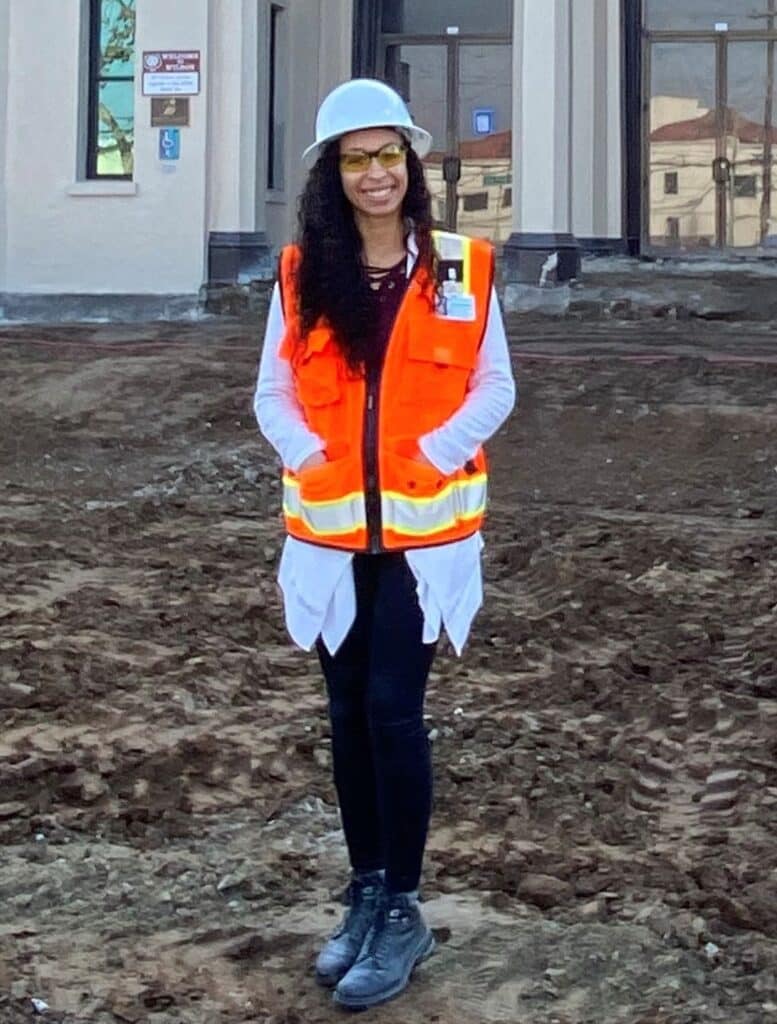Welberlania Barbosa da Silva is changing the face of the construction industry.
Today marks the start of Women in Construction Week, a week our industry has designated to appreciate, inspire, and congratulate all of the hardworking women in a predominantly male-oriented field. As active supporters of this mission, Total-Western would like to take a moment to recognize the strong women of our company who are making a difference in the construction industry, such as Project Engineer, Wilberlania “Lalina” Barbosa da Silva.
Lalina is originally from Sao Paulo, Brazil, where she began her career at the age of 18. Her love for construction began with her brother, who is also in the construction industry and encouraged her to pursue a career in the field. Lalina always knew she wanted to make a difference in the world and make an impact in her community. She originally planned to visit the United States and learn English before returning to Brazil to continue her career as a Civil Engineer, but life had other plans for her.
Q: Why did you choose construction? What led you to the industry?
It was all because of my brother, he’s been in the industry since he was very young. When I finished high school, I was unsure what I wanted to do, and one day he asked me, “Why don’t you do civil engineering? I think you would be pretty good at it.” He then continued to show me what they did and how many women were entering the field. As I enrolled in classes, I fell in love with it and haven’t looked back since.

Q: Can you tell us a bit more about what your journey/career in the construction industry has been like?
I have done a bit of everything. I began in Brazil when I was 18 as an intern in an infrastructure project. Upon completing the project, I was offered a permanent position, but due to college, I was unable to accept it. The company was located out of state, which would require me to move and drop out of school. After graduation, I tried to find a job in Brazil, but due to corruption going on at the time in the industry it became very difficult. It was then that I decided to come to the United States to study English and improve my resume. While here, I met my husband and decided to stay. Soon after, I landed a job as a project engineer with a construction management company that I was with for many years. I always wanted to get back to civil engineering, which is how I ended up in Total-Western.
Q: What has been the most surprising part about being a woman working in this industry?
What surprised me the most was the number of women in the industry: I was not expecting there to be so many. It was quite impressive, especially in Brazil. You always see men in these types of fields, never women.
Q: What are some of the strengths you believe women bring to the field?
One of the strengths I often see is that women are very detail-oriented. When you work on these complex projects, it’s very important not to miss a thing. We as women will notice even the smallest details, which ultimately benefits the project and the team.
Q: How do you think the construction industry can attract more female candidates?
By promoting jobs in the field that cater to women’s natural qualities and strengths. For example, in my experience, women tend to have excellent organizational skills and attention-to-detail which are qualities we would look for in a project manager. Sometimes as women, we fail to see that we can do the same jobs that men do because we don’t see these skills as special, but they are.

Q: What’s the best part of your job?
The best part of my job is knowing that it has an impact on society. I love knowing that I’m improving the communities I am working in.
Q: What has been one of the most memorable projects you have worked on?
Back in Brazil, I was able to work on a three-year project that collected sewage from the whole city. We were able to find a way to filter the water so it was clean enough to recycle into the river. It was an awesome project to work on.
Q: What do you think is the most important change happening in the construction industry?
Women now have more liberty to choose what they want to do within the industry. This is something we didn’t see before; women were always expected to have office jobs or admin roles and might have never thought about doing something different, like being out in the field.

Q: What makes you proud of working in the construction industry?
Not only am I making an impact in society, but, as a woman, I’m making an impact in society by working in construction.
Q: The construction industry is embracing the advancement of women. What advice would you give to young women who are just starting out?
I would say don’t be scared or afraid. A lot of women are still fearful to branch out into these industries simply because they are afraid of facing prejudice or being disrespected by their co-workers, but the industry is changing and that has not been my experience at all. I love my job and what I do.
